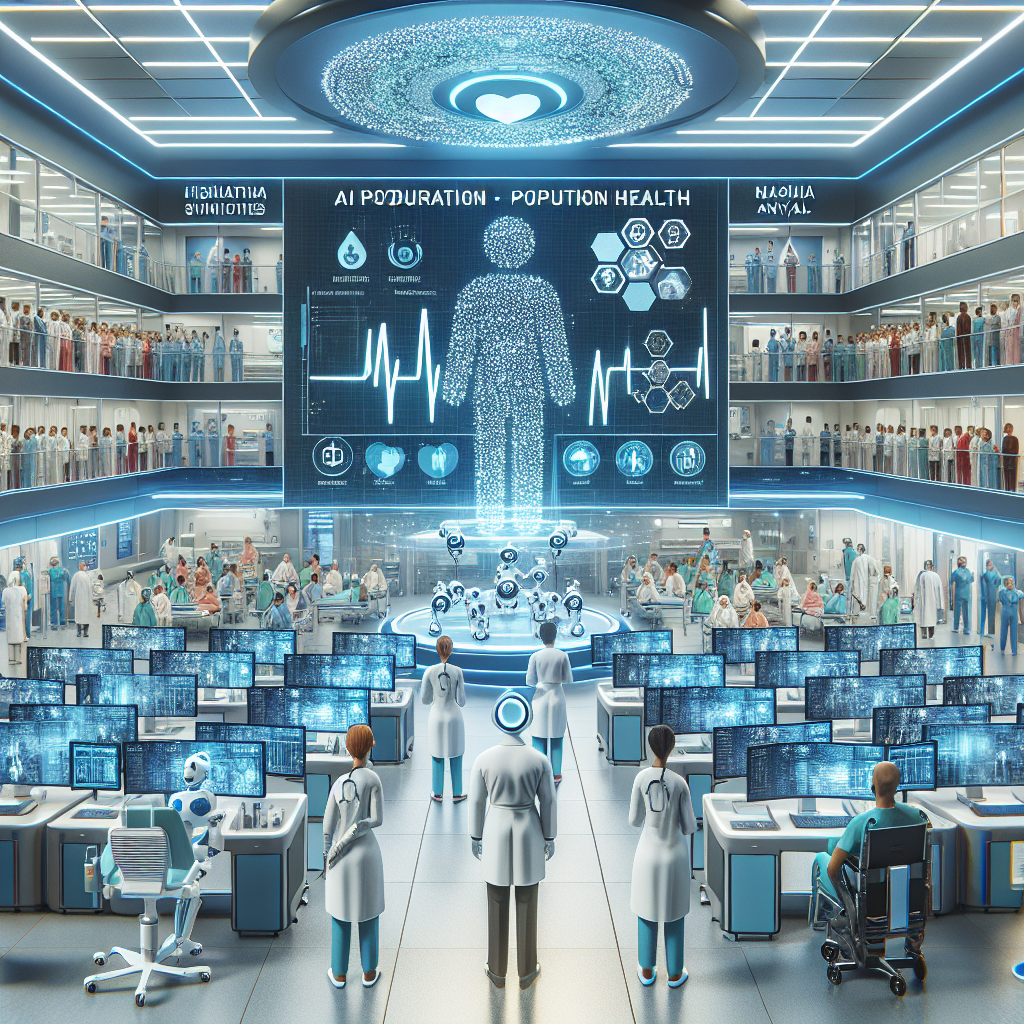Artificial Intelligence (AI) has been making significant strides in various industries, including healthcare. In recent years, AI integration in healthcare population health has become increasingly popular as organizations strive to improve patient outcomes and reduce costs. This article will explore the benefits of AI integration in healthcare population health, as well as some common concerns and challenges.
Benefits of AI Integration in Healthcare Population Health
1. Improved Patient Outcomes: AI can analyze vast amounts of patient data to identify patterns and trends that can help healthcare providers make more informed decisions. This can lead to better diagnosis, treatment, and overall care for patients.
2. Cost Savings: By automating certain tasks and processes, AI can help healthcare organizations save time and money. For example, AI-powered predictive analytics can help identify high-risk patients who may require additional care, ultimately reducing hospital readmissions and unnecessary costs.
3. Personalized Care: AI can help tailor treatment plans to individual patients based on their unique characteristics and medical history. This can lead to more effective and personalized care, ultimately improving patient outcomes.
4. Streamlined Operations: AI can help streamline administrative tasks, such as scheduling appointments, processing insurance claims, and managing patient records. This can free up healthcare providers to focus more on patient care and less on administrative tasks.
5. Early Detection and Prevention: AI can help identify early warning signs of certain medical conditions, allowing healthcare providers to intervene early and prevent the progression of diseases. This can ultimately lead to better health outcomes for patients.
Challenges and Concerns of AI Integration in Healthcare Population Health
1. Data Privacy and Security: One of the biggest concerns surrounding AI integration in healthcare population health is the security and privacy of patient data. Healthcare organizations must ensure that patient data is protected and compliant with regulations such as the Health Insurance Portability and Accountability Act (HIPAA).
2. Bias and Fairness: AI algorithms are only as good as the data they are trained on, and there is a risk of bias in the data that could lead to unfair treatment of certain populations. Healthcare organizations must be vigilant in monitoring and addressing bias in AI algorithms to ensure fair and equitable treatment for all patients.
3. Integration with Existing Systems: Integrating AI into existing healthcare systems can be a complex and time-consuming process. Healthcare organizations must carefully plan and implement AI integration to ensure that it is seamless and does not disrupt existing workflows.
4. Lack of Trust: Healthcare providers and patients may be hesitant to trust AI-powered systems with important healthcare decisions. Building trust in AI technology and ensuring transparency in how AI algorithms are used are critical to successful AI integration in healthcare population health.
Frequently Asked Questions (FAQs)
Q: How can AI help improve population health in healthcare?
A: AI can help improve population health by analyzing large datasets to identify trends and patterns that can help healthcare providers make more informed decisions. AI can also help personalize treatment plans for individual patients based on their unique characteristics and medical history.
Q: What are some examples of AI applications in healthcare population health?
A: Some examples of AI applications in healthcare population health include predictive analytics for identifying high-risk patients, personalized treatment plans based on patient data, and early detection of medical conditions through data analysis.
Q: What are some of the challenges of AI integration in healthcare population health?
A: Some of the challenges of AI integration in healthcare population health include data privacy and security concerns, bias and fairness in AI algorithms, integration with existing systems, and building trust in AI technology among healthcare providers and patients.
Q: How can healthcare organizations address the challenges of AI integration in population health?
A: Healthcare organizations can address the challenges of AI integration in population health by ensuring data privacy and security, monitoring and addressing bias in AI algorithms, carefully planning and implementing AI integration with existing systems, and building trust in AI technology through transparency and communication.
In conclusion, AI integration in healthcare population health has the potential to revolutionize the way healthcare is delivered and improve patient outcomes. While there are challenges and concerns to address, the benefits of AI integration in healthcare population health are significant and can lead to better, more personalized care for patients. By carefully planning and implementing AI integration, healthcare organizations can harness the power of AI to improve population health and drive better health outcomes for all.

